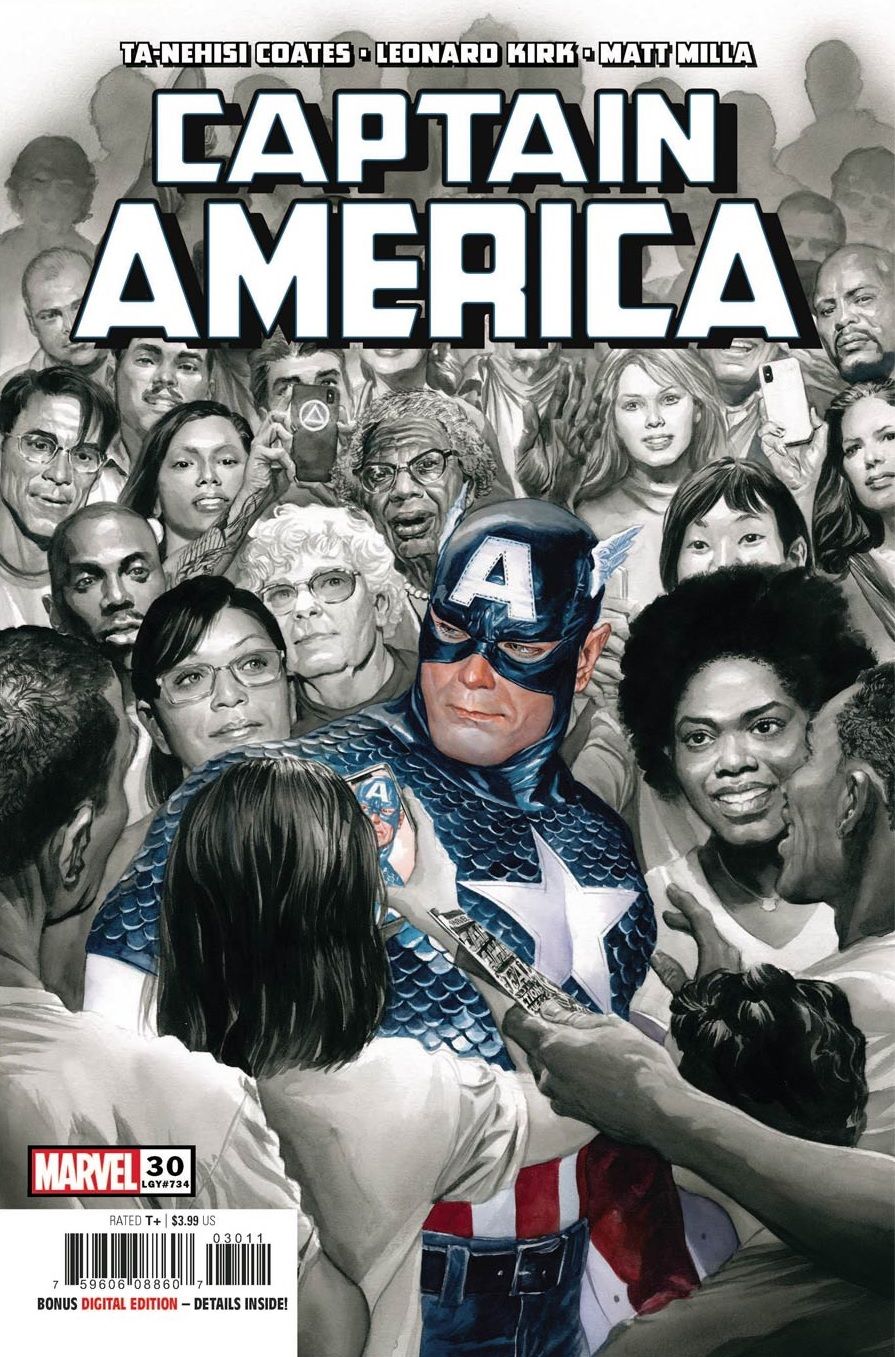
It seems like a day doesn't go by without Captain America causing some controversy. For decades, the "Star-Spangled Man with a Plan" has been used by Marvel Comics as a way to tie-in to real-world events. Whether it be through changing the man behind the mantle, killing off characters, or the use of political analogs, Captain America's story has often depicted the very complicated heart of the United States. When Ta-Nehisi Coates took over as writer for Cap's monthly adventures, he addressed the fallout of Secret Empire by furthering the political turmoil in the series and creating a parallel to real-world events. Now, just over three years later, Captain America #30 by Ta-Nehisi Coates and Leonard Kirk is a stellar end to an important chapter of Steve Rogers's life that hints at what dangers are yet to come.
Captain America #30 opens with Cap storming Aleksander Luskin's fortress, facing off against Crossbones and the Watchdogs. As soon as Captain America defeats one skull-faced foe, he finds himself staring at the Red Skull, who welcomes Steve to sit down for a meal with him. Cap accepts and the two engage in a heated debate for the heart of America. At the same time, the Daughters of Liberty find themselves working against the clock to hack into the Red Skull's network in a last-ditch effort to expose his crimes to the world.
Throughout his run, Ta-Nehisi Coates has used the Captain America series to address the complex political climate of the United States. This tradition continues in Captain America #30, as Coates places Cap in a philosophical debate with the Red Skull. While the Red Skull's politics have drawn comparison to those of conservative lecturer Jordan Peterson, the decision to use a debate as a staging ground for the final resolution of this series seems to be a more direct commentary on the "Debate Me" culture that dominates social media platforms.
Coates' framework for #30 is an inspired choice that spotlights the ethics of Steve Rogers over the might of Captain America. This is a superb final statement for Coates to make with the character and is a great example of Coates' understanding of Steve Rogers. Beyond that, Coates refrains from giving this issue a clean resolution, as Captain America realizes that the freedoms that Americans enjoy also enables them to willingly follow false prophets. It is an unsettling realization that casts a shadow over the future of the hero.
Kirk provides a veteran art presence to Captain America #30, guaranteeing a beautiful end to the series. Kirk is versatile and excels at bombastic action scenes as well as quiet character moments. Even when the issue slows down for Cap's debate with the Red Skull, Kirk manages to keep things visually interesting by using dynamic camera angles and alternating the panel layouts. Colorist Matt Milla has been present throughout much of Coates' run and has given the series a sense of visual stability amidst several different pencillers. Milla is a great accomplice for Kirk's linework and fills out the figures with explosive colors that feel like quintessential Captain America. Together, the two artists create a Steve Rogers that makes him look equally like a beefcake superhero and a noble statesman worthy of being President.
All in all, Captain America #30 is an extraordinary end to writer Ta-Nehisi Coates' acclaimed run on Marvel's most patriotic hero. The issue provides a well-earned conclusion to Cap's ideological war with the Red Skull and sets up multiple plot threads for future creative teams to explore. Leonard Kirk and Matt Milla capture the heart of Coates' script, while also showcasing Cap's amazing fighting prowess. As fans prepare for the next era of Captain America, one that is already being slammed by some for a perceived "New Woke-ness," the strong character work and complex politics of Ta-Nehisi Coates' tenure on the series should be looked back on as a crucial step in examining the character in the wake of Secret Empire.
0 Comments